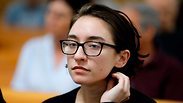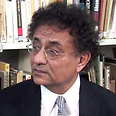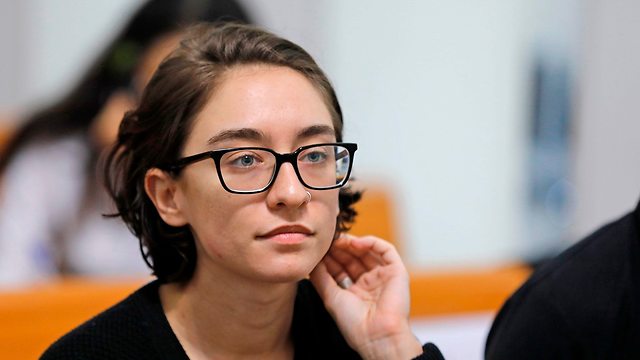It is possible, it is definitely possible, that the State of Israel should've allowed Lara Alqasem to enter the country from the outset. The damage that may have been done to Israel by denying her entry, as quite a few articles argued, sometimes exceeds the benefits of enforcing the law.
But with all due respect to the writers of these articles, article D(2) of the Entry Into Israel Law clearly states that: an entry permit will not be granted to someone who is not an Israeli national "if he, the organization or the body he acts on behalf of knowingly issues a public call for boycotting Israel."
Alqasem headed a local chapter of the Students for Justice in Palestine, the body that leads the boycott against the State of Israel, and whose heads reject the very existence of the State of Israel.
There is no argument that the government's ministers acted in accordance with their authority. But the Supreme Court reversed the decision on Thursday because, in the opinion of the honorable justices, it is unreasonable: "Alqasem's desire to study in Israel is in contradiction with the idea of boycotting Israel." Excuse me?! Do these judges live in Israel? After all, Israel's universities have both lecturers and students who support the boycott movement. And the boycott movement's most prominent leader, Omar Barghouti, was, and perhaps still is, a student at Tel Aviv University. He's travelling around the world and preaching for the eradication of Israel. Is his or Alqasem's insistence to study at an Israeli university an indication of anything?
I could go on with more and more arguments mentioned in the decision, but there is not enough space to cover all of them. Because the problem with the ruling was and remains in the determination that the decision to deny Alqasem entry was unreasonable.
The range of reasonable responses is supposed to be broad. Very broad. Otherwise, the executive branch's discretion should be revoked and transferred to the jurists. Some citizens would disapprove of the decisions made under the executive branch's discretion. But if everything citizens—mostly if they belong to the media and academic elite—disapprove of becomes unreasonable, we could declare democracy dead.
Furthermore, two lower courts have already ruled that the decision was reasonable. Meaning, common sense says that if both government ministers and two judges in two courts consider the decision reasonable, it necessarily falls within the range of reasonable responses. But not for the Supreme Court justices, that the more they minimize the range of reasonable responses, they minimize democracy. And in general, based on the rule created on Thursday, any BDS supporter could say he changed his mind and infiltrate Israel.
The absurd in the reasonability claim becomes far more disturbing when checking the list of those denied entry in other democratic countries. Britain denied entrance to American nationals Michael Alan Weiner (Michael Savage) and Shirley Phelps-Roper, as well as Israeli politician Moshe Feiglin because of their views. The US denied entry to Swiss academic Ramadan Tariq, British teen Luke Angel and Liza Maza from the Philippines because of their views. And there are many others. They were not members of organizations that reject the right to exist of the countries that denied them entry. But in Israel, as late judge Menachem Elon once said, there's sometimes confusion between the rule of law and the rule of the judges. On Thursday we saw another example of that.



















